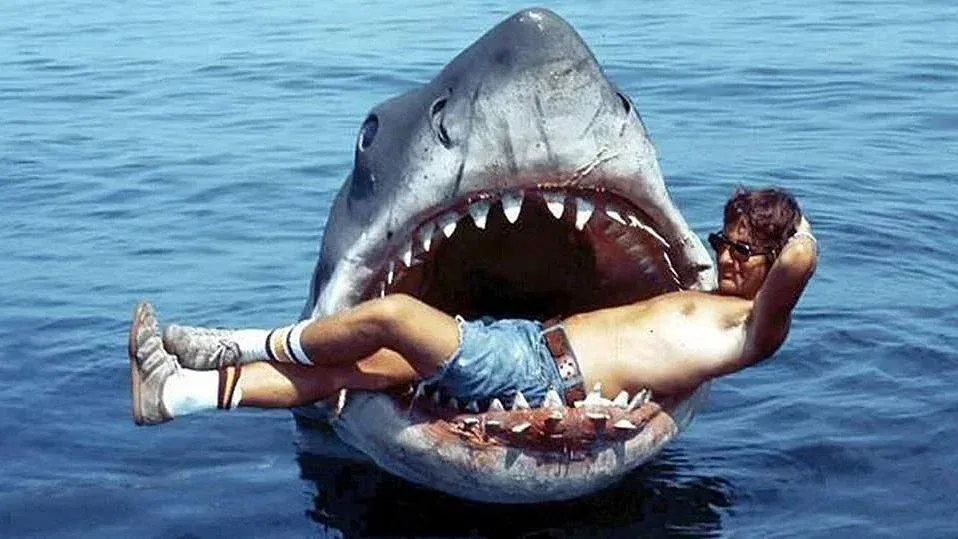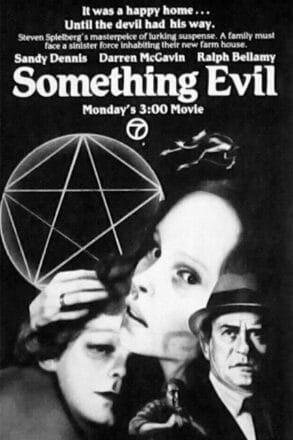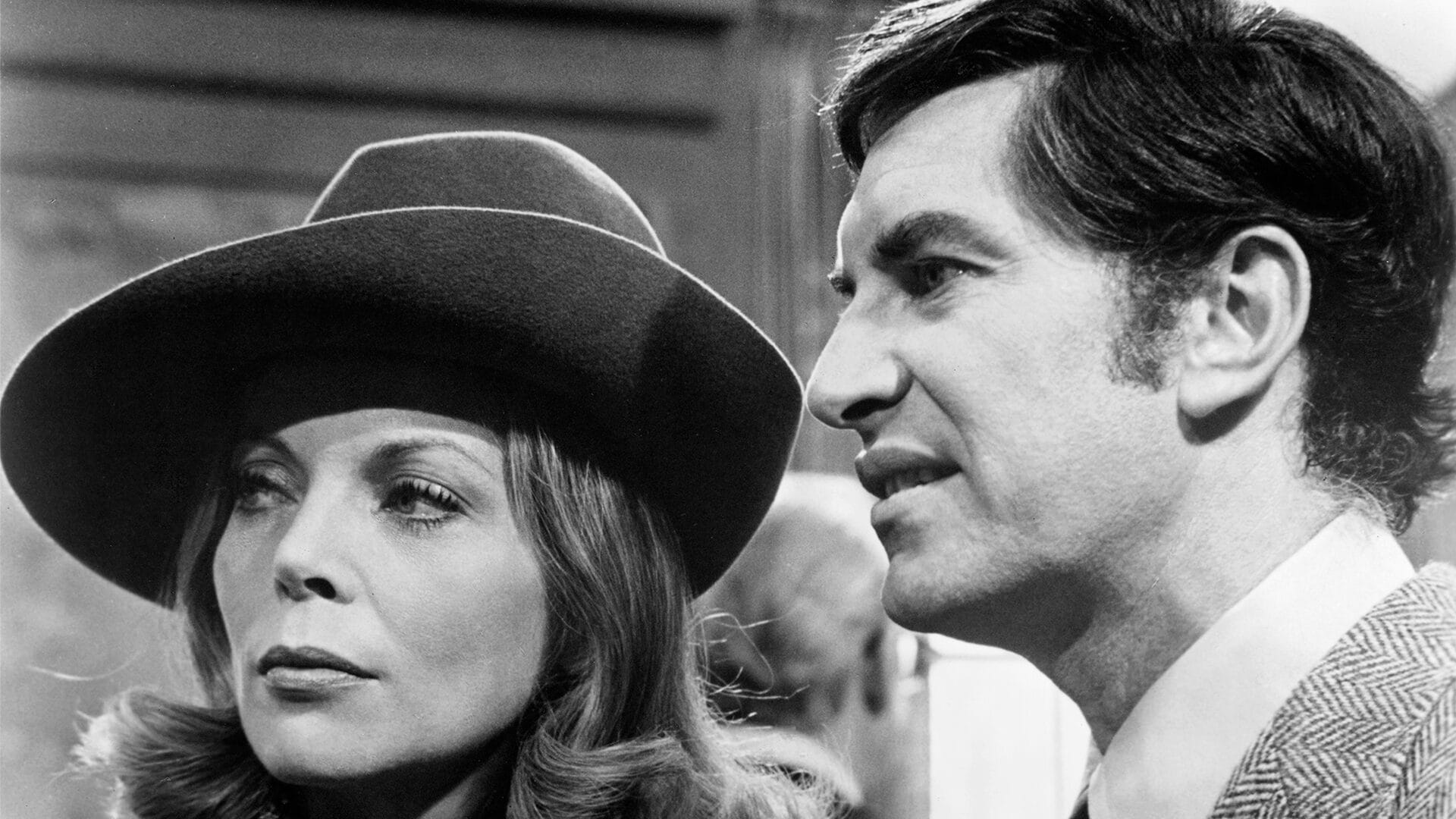Ranking Steven Spielberg, Part 1: The '70s
Revisiting the first decade of my favorite director.

I'll write on any app that'll allow it, and I often say one of the only social apps I have any fun using is Letterboxd, a useful tool for people who think way too much or too hard about movies and want to share what they watched and what they thought about it. It took me quite some time to warm up to it; I remember my friend Dylan Roth extolling the virtues of the app some years ago, setting up an account, and thinking "how much am I going to use this?"
We can partly thank the works of Steven Spielberg for how much and how enthusiastically I do. Spielberg is my favorite director—easily the visual creative I've thought about most. In 2022, after seeing his latest film, the semi-autobiographical The Fabelmans, I realized there were quite a few films of his I'd either never seen or owned. Over the months that followed, I got just about all of his filmography on Blu-ray and sought out to watch or rewatch his films in chronological order over 2023.
Since most of you have a healthier relationship to media than I do, I thought it would be fun to share those reviews with you here, in your e-mail. As there are still four movies I have to watch for the first time (all in the '00s or '10s), I figured I'd share my rankings of them by decade. I hope you enjoy reading!
Lotta people in this movie.
- 1941 (1979) - ⭐️⭐️ out of 5
Spielberg closed out his first full decade as a director with an almost unbelievable misfire: a loud, obnoxious, unfunny, sprawling World War II comedy, written by Robert Zemeckis and Bob Gale (who would, with Spielberg as producer, deliver an essentially perfect film six years later in Back to the Future) and starring a wildly talented ensemble cast who are never given enough to do with about seven interwoven plots in the mix. (Dan Aykroyd, John Belushi and John Candy at least found the right kind of loud mess in The Blues Brothers just a year later.)
Midway through the two-hour running time, I found myself agog that it wasn’t nearly over; 1941 features almost none of the whiz-bang charm Spielberg had proven a steady hand on many times over (a USO dance/fight sequence, some climactic model work and John Williams’ score offer exceptions to this). It’s also rather annoyingly self-referential, with shoehorned gags and references to Duel and JAWS early on. (Disturbingly, there’s a director’s cut that runs a half hour longer.)
Steven would pay his propers to the ravages of war in the next two decades, but 1941 is a hell all its own.

- Something Evil (1972) - ⭐️⭐️ 1/2
Duel, Steven Spielberg’s first TV movie, was theatrically released in Europe and is today given special status as his directorial debut three years before his first official feature, The Sugarland Express. Why have the two TV movies he helmed in between fallen into obscurity? Watching Something Evil, a production so rare I had to find it on YouTube, it’s easy to see why. Despite a stacked cast (Sandy Dennis and Ralph Bellamy, the Old Man from A Christmas Story, are solid leads, and even Johnny Whitaker, the redheaded kid from Family Affair, does a solid job) and above average visuals courtesy of future JAWS cinematographer Bill Butler, this is a frustratingly anonymous horror movie. And yet, I couldn’t help but imagine if Blumhouse remade it today, it would do numbers. Steven’s always ahead of the curve, I guess.

- Savage (1973) - ⭐️⭐️⭐️
The other “lost” TV movie in Spielberg’s filmography between Duel and The Sugarland Express, Savage enjoys the pedigree from co-writers/executive producers William Link and Richard Levinson, the TV whodunit masters who gave us Mannix, Murder, She Wrote and, of course, Columbo (whose first regular episode was directed by Spielberg). Translating the format from detective to investigative journalist was novel—this intended pilot aired barely two months after Nixon’s second term began—and Martin Landau brings steel (if not style or distinction) to the main character. Ultimately, the press was represented on TV in much different fare. Score another point for Bill Butler’s steady cinematography and a notable bit role by Carl Gottlieb as one of Savage’s staff; both worked on Something Evil and would bring magic as director of photography and co-screenwriter of JAWS.
Steven would later describe his caution about being known as a "shark-and-truck director," but said nothing about nearly being a "wheels director."
- The Sugarland Express (1974) - ⭐️⭐️⭐️ 1/2
Steven Spielberg’s first true theatrical feature is pure Spielberg Mk. 1, with much of the Universal brain trust that later put JAWS together (including a striking, brief score by John Williams, their first of many collaborations). Real playing against type for Goldie Hawn, then and now known as a comedienne, and William Atherton, later a quintessential '80s douchebag in Ghostbusters and Die Hard.
In terms of action, it’s a subtle attempt to one-up the mano a mano vehicle chase of Duel with a precise, low-speed caravan at the center of the story. Narratively, it’s a striking departure of sorts for Spielberg, who’s often attracted to characters that immerse into or triumph over fantastic situations instead of getting caught under the wheels. A better (or more unintentionally prescient) approach would’ve also used how the public reacts to these unbelievable folk lawbreakers as more of the main course than a sparing garnish. That avoidance is a testament to how Steven so often sides with doing good—but that he tried shifting gears this early, and did it pretty compellingly, is a sign of what wonders are to come.
A great film festival or boutique DVD box set would gather up Steven's pre-Sugarland work, just about all of which is controlled by Universal and most of which is unreleased.
- Amblin' (1968) - ⭐️⭐️⭐️⭐️
For the first time ever, I watched the entirety (in smeary taped off film and uploaded to YouTube quality) of the 26-minute short that served as a young Steven Spielberg’s entryway into directing professionally. A simple, wordless account of two young free-lovers hitchhiking in the desert isn’t what you might expect from the future largest private collector of Norman Rockwell art, but a keen eye for expressive faces (including a male lead that looks kinda like young Steven) and some impressive angles, shadows and sunsets overseen by cinematographer Allen Daviau (who’d employ a lot of similar, terrific tactics 14 years later on E.T.) help the viewer realize that there’s some real raw talent herein.
One thing's for sure - that's a seriously messed-up truck!
- Duel (1971) - ⭐️⭐️⭐️⭐️
The thing about watching Duel and regarding it as Steven Spielberg’s first proper feature is trying to watch through the (very good) 15 minutes or so of extra footage he shot to get it ready for a feature length release in Europe. (My hope is that TV cut is one day made available [well, whaddaya know! -Ed.].) The added footage includes some truly Spielbergian touches—a bus full of kids stranded on the roadside, that terrific sequence where the demonic tanker truck attempts to slowly push our hero into the path of an oncoming train—but there’s just as much to appreciate either way. Early on, that long pan from the side of the car to the truck really roused my attention. Imagine a TV movie going for grit and grandiosity like this, instead of process shots and background plates. Imagine a Marvel movie doing that today!
There’s a really intriguing moment toward the end of a half-hour bonus interview with Steven on the Blu-ray where he notes how interesting it is when people read themes into his work he didn’t intend to put there. The one I thought about a lot here was the meta-commentary on masculinity throughout the movie. Dennis Weaver’s character is listening to what could amount to right wing talk radio when we first see him (a man bemoaning not being the head of the household anymore thanks to his wife); he then calls to halfheartedly apologize to his own wife about a prior transgression (not standing up to a friend or coworker making a pass at her) and later gets laid out at a cafe when trying to big league a truck driver he thinks is the one terrorizing him. Even his own victory over the truck leaves him stranded by a cliff face, tossing pebbles into the abyss as the sun sets. Spielberg will push a different type of “good guy” through his entire career.
What a debut, and what joy to know it even gets better from here.
Close Encounters has the first of many GOAT performances by a kid. Cary Guffey hardly did anything after this - he's a financial planner now - but he certainly didn't need to.
- Close Encounters of the Third Kind (1977) - ⭐️⭐️⭐️⭐️⭐️
A staggering, beautiful work—maybe the one film of Steven’s we don’t give enough credit to, owing to factors both present (it came out months after Star Wars, a much easier, fizzier space adventure) or future (Spielberg expanded on some of these themes and icons to create the even better E.T. The Extra-Terrestrial five years later).
Where Close Encounters shines is the real pain under its beauty—Roy Neary tries and often fails to convey the life-changing miracle he’s experienced to others, ultimately leaving him shouldering the burden of truth alone (and, somewhere, in another story, leaving a family without answers or closure). That pain is real if you yourself remember what it’s like to feel misunderstood. As such, when Roy finally finds kindred spirits in Jillian Guiller and especially Truffaut’s brilliant Claude Lacombe, you almost feel as happy for yourself as him, to spare your heart from the sting of misunderstanding. In spite of all this, of course, Spielberg—working with some of his greatest compatriots (including John Williams’ brilliant score and the first of many collaborations with editor Michael Kahn)—leaves you gobsmacked and hopeful by the majestic finale. (Little Puck and Lacombe’s final wordless exchange—nearly a post-credit teaser for E.T.—made me weep.)
In keeping with my Spielberg rewatch (knocked out of strict chronological order thanks to an impromptu E.T. screening in June 2023 and all four Indiana Jones films to prepare for the fifth and final, which Steven did not direct), I watched the original cut for what I believe was my first time. Modern screenings offer the 1997 director’s cut, retaining the best added effects and additional character beats from the 1980 special edition while wisely deleting the final coda where it’s revealed the inside of the mothership looks like a Disney hotel lobby. The Blu-ray offers all three cuts as well as a truly helpful fold-out poster explaining the differences therein. I briefly mourned the exclusion of the discovery of the battleship Cotopaxi (a simple but compelling effects shot that you should look up yourself and marvel at Spielberg’s genius) as well as a painful scene where Roy’s encounter splits the family fissure further (a moment Steven later revealed was lifted from his own reaction to his parents’ divorce—never not crying about that when I see it now). Ultimately, though, it stifles the brilliance of this picture not a whit; I think it’s fair to call this his best of the decade next to...
God, even the trailer is great!
- JAWS (1975) - ⭐️⭐️⭐️⭐️⭐️
A stunningly fleshed out character drama with a monster movie in the background—and then, a claustrophobic suspense movie that must’ve made Hitchcock wonder about the kid he threw off the set of Torn Curtain. There’s craft in every frame, blood sweat and tears that learning about would only make you appreciate the movie more (get thee to co-writer Carl Gottlieb’s The JAWS Log ASAP). I am indeed smiling, you son of a bitch: two hours of cinematic bliss to ease into this increasingly foolish national Fourth of July holiday, works every time.
